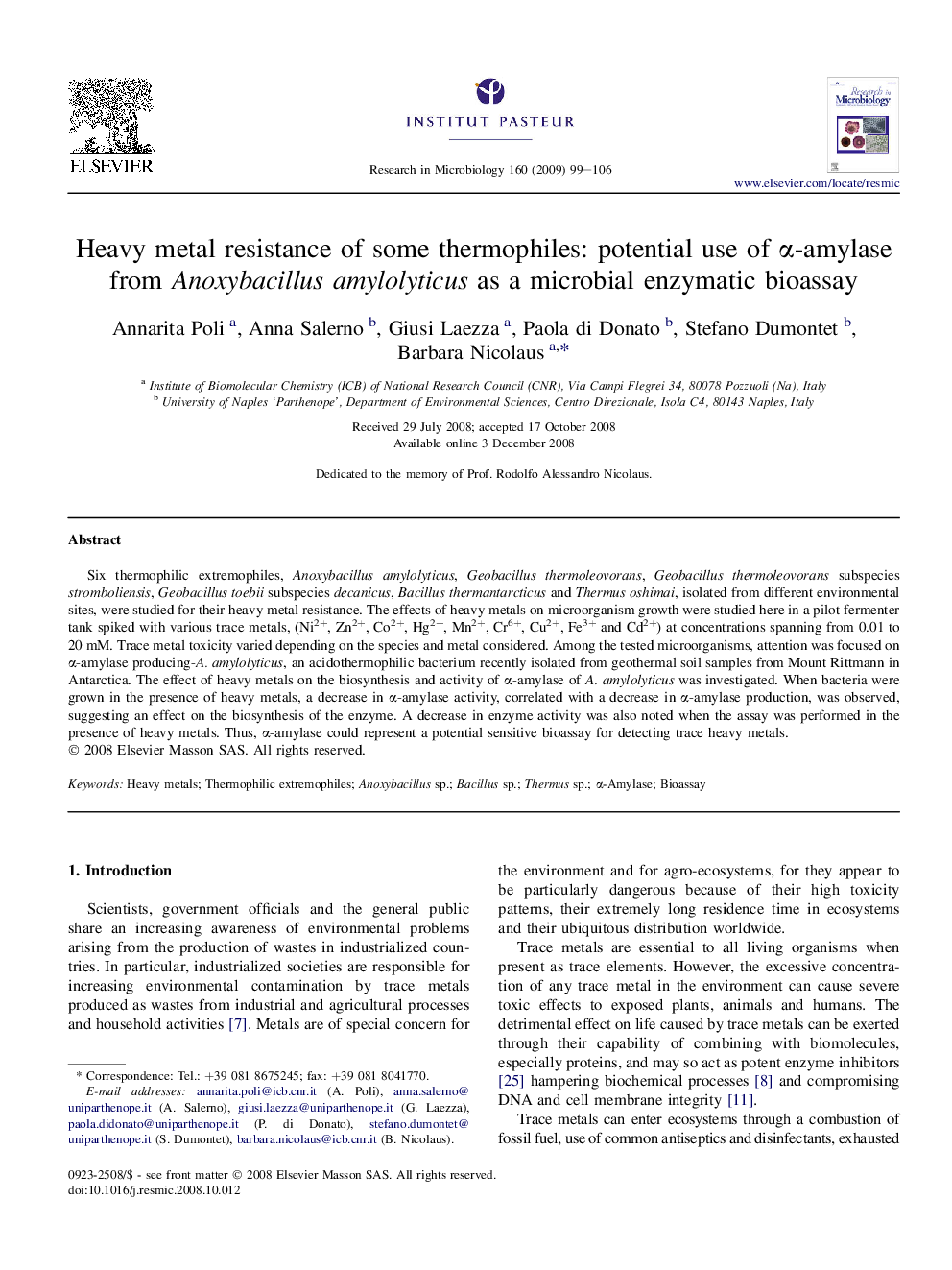| Article ID | Journal | Published Year | Pages | File Type |
|---|---|---|---|---|
| 4359260 | Research in Microbiology | 2009 | 8 Pages |
Six thermophilic extremophiles, Anoxybacillus amylolyticus, Geobacillus thermoleovorans, Geobacillus thermoleovorans subspecies stromboliensis, Geobacillus toebii subspecies decanicus, Bacillus thermantarcticus and Thermus oshimai, isolated from different environmental sites, were studied for their heavy metal resistance. The effects of heavy metals on microorganism growth were studied here in a pilot fermenter tank spiked with various trace metals, (Ni2+, Zn2+, Co2+, Hg2+, Mn2+, Cr6+, Cu2+, Fe3+ and Cd2+) at concentrations spanning from 0.01 to 20 mM. Trace metal toxicity varied depending on the species and metal considered. Among the tested microorganisms, attention was focused on α-amylase producing-A. amylolyticus, an acidothermophilic bacterium recently isolated from geothermal soil samples from Mount Rittmann in Antarctica. The effect of heavy metals on the biosynthesis and activity of α-amylase of A. amylolyticus was investigated. When bacteria were grown in the presence of heavy metals, a decrease in α-amylase activity, correlated with a decrease in α-amylase production, was observed, suggesting an effect on the biosynthesis of the enzyme. A decrease in enzyme activity was also noted when the assay was performed in the presence of heavy metals. Thus, α-amylase could represent a potential sensitive bioassay for detecting trace heavy metals.
